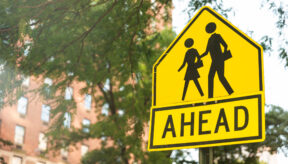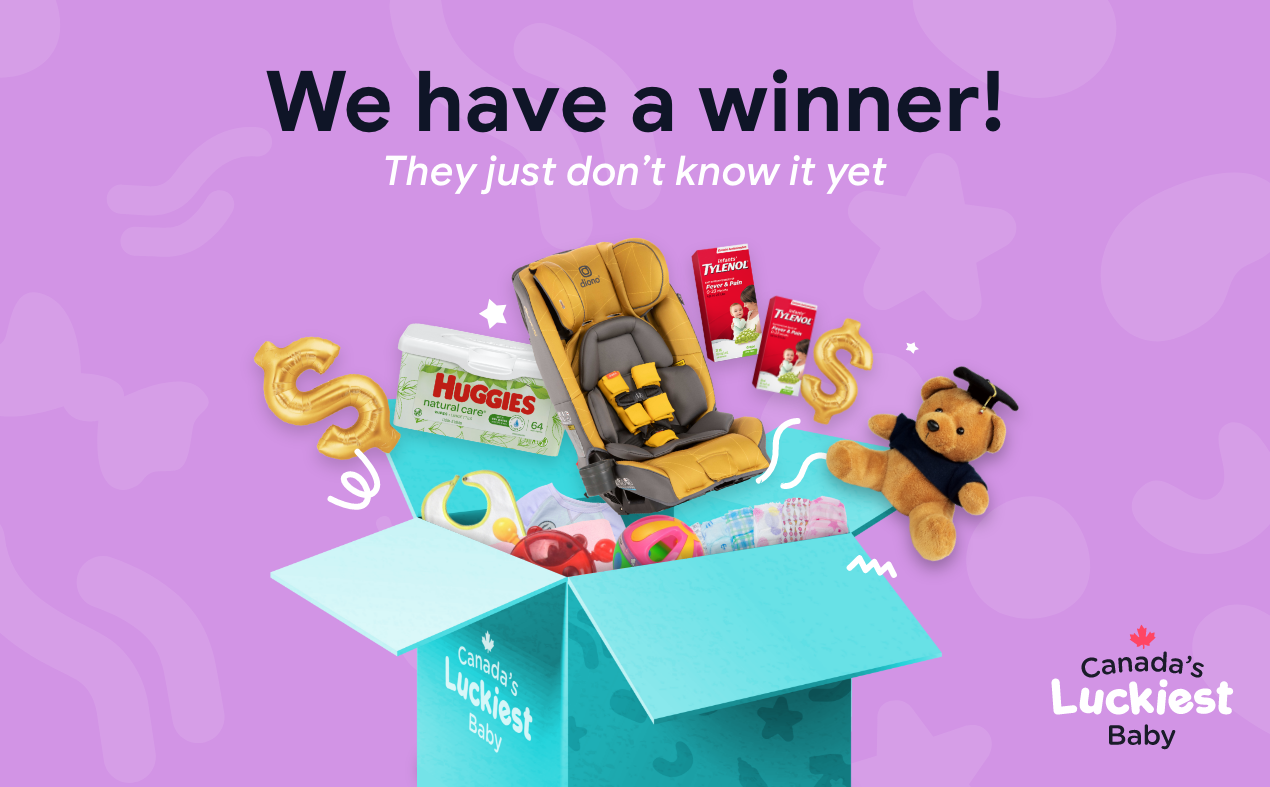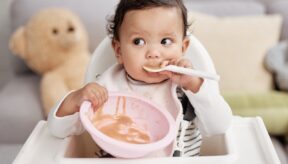Track your child’s growth with this quick guide to developmental milestones from birth to 36 months. Read on for the physical, cognitive, social and emotional benchmarks to look for as your little one grows.
Your baby is going to do more growing in the first three years of their life than at any other time (just wait—they literally go from adorable little bundles to walking, talking sticky toddlers in the blink of an eye). It’s both incredible and baffling, and you’ll no doubt relish all of the new things they learn to do each day.
But, it can also be confusing to know what milestones your child should be hitting at each age. With this in mind, we’ve compiled a snapshot of common benchmarks to look for as your babies grow into full-fledged kids. Keep reading (and bookmark this page!) for the rundown.
An Important Note on Timing
Babies and kids all meet milestones at their own pace, and progress is progress. For example, some babies will walk at ten months, while others won’t take their first steps until 18 months. This is normal and perfectly fine. But if you’re ever concerned that your child is not hitting developmental targets, speak to their doctor for reassurance and/or intervention.
Physical Development by Age
- Birth to six months: Babies should be able to lift their heads for tummy time early in this time period, but closer to the six-month mark, they should be on the verge of rolling over, reaching for objects and even transferring objects between their hands.
- Seven months to a year: Crawling, sitting without support and pulling up to standing are usually skills mastered during this time period. Some babies may take their first steps by the end of year one.
- 12 to 36 months: During this two-year period, kids will evolve from walking into running, jumping and climbing. They’ll start to be able to kick or throw objects, and they’ll be able to use utensils. By age three, they’ll likely have mastered a number of fine and gross motor skills, like stacking blocks, drawing shapes or pedalling a tricycle.
Play is an excellent way to foster new physical skill development, so never take a playdate or trip to the park for granted. Opportunities to experience new environments and try new things are important for fostering progress in kids of all ages.
Cognitive Development and Language Skills by Age
- Birth to six months: Infants in this age group are focused on exploring the world around them through their senses. They will start to recognize voices and faces, as well as certain words (like their name!). They’ll also find their own voice and express themselves through cooing and babbling, which are actually precursors to speech.
- Seven months to a year: Babies develop object permanence during this time period—meaning they understand that things exist even when they can’t see them. They may say their first words by 12 months, which are usually simple, single-sound terms like “mama” or “dada.”
- 12 to 36 months: Kids in this age group usually experience a language explosion at some point, adding somewhere between 50 and 200 words to their vocabularies. They can usually string simple sentences together by age three. They will also work on sorting, easy puzzles and engaging in pretend play.
Social and Emotional Development
- Birth to six months: In the earliest days, babies bond and communicate with caregivers through eye contact, smiling and crying to express their needs. They will recognize familiar faces and begin laughing in response to interactions between three and six months.
- Seven months to a year: This is when separation anxiety may set in, as babies form strong attachments to the people who care for them. They’ll also respond to games like peekaboo, and may giggle when tickled.
- 12 to 36 months: You’ll hear the word “no” a lot from kids in this age category (as soon as they learn it!). This is the earliest example of a child exerting independence. In addition to autonomy and the ability to express emotions more clearly, cooperative play and empathy both start to appear by age three.
These are just the basics of the many specific skills and behaviours involved in developmental frameworks. It’s best to seek out a reliable, comprehensive resource to check in with often, like the Looksee checklists out of Ontario’s Nipissing district (Looksee was previously known as the Nipissing District Developmental Screening tool). You can sign up for free, ongoing screening questionnaires through Looksee, to help you assess your child’s skills when they reach a new age range. This helpful tool allows you to quickly inventory your child’s current proficiencies and follow up with your family care team as required.
*Opinions expressed are those of the author, and not necessarily those of Parent Life Network or their partners.

 Partner Post
Partner Post





